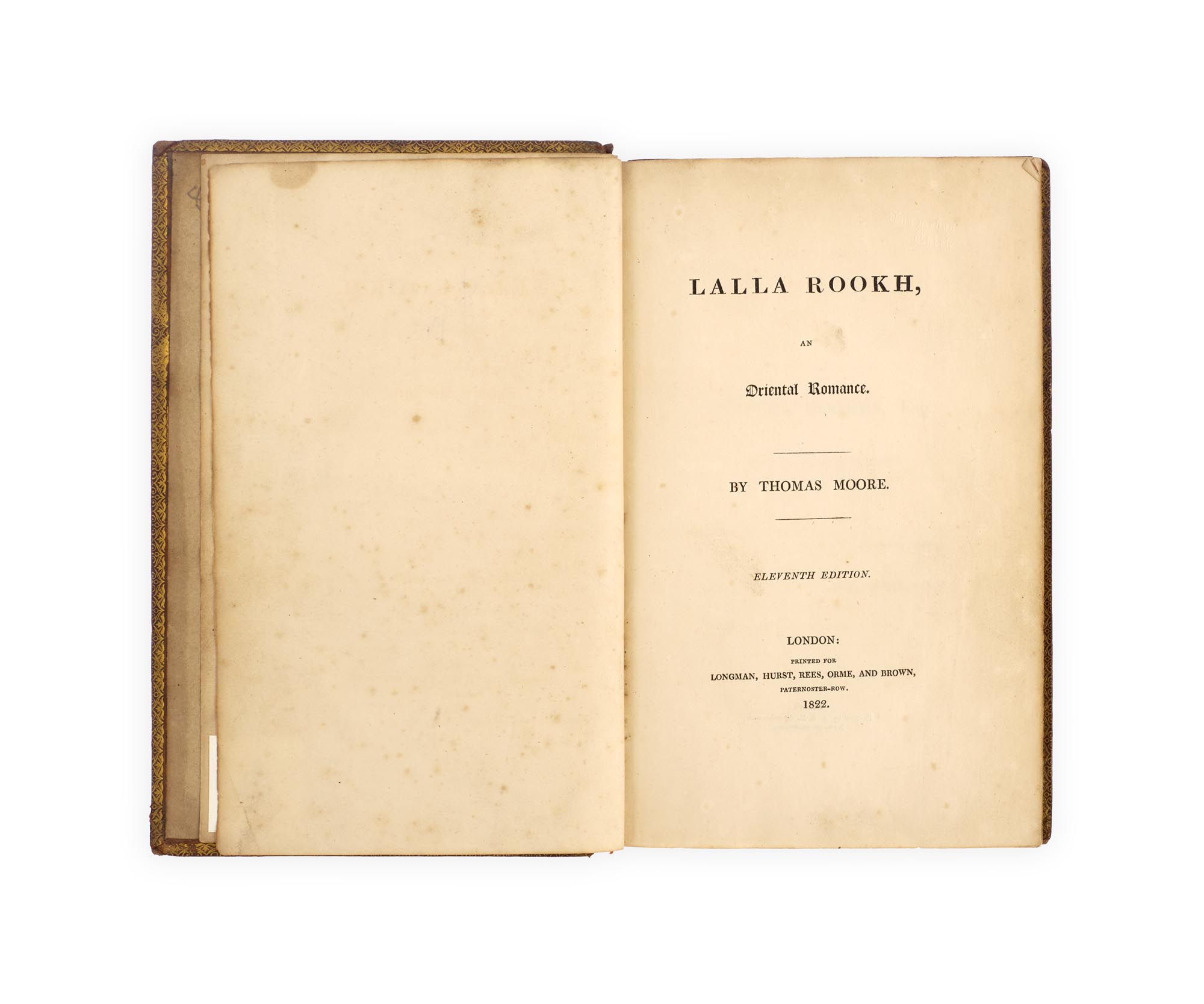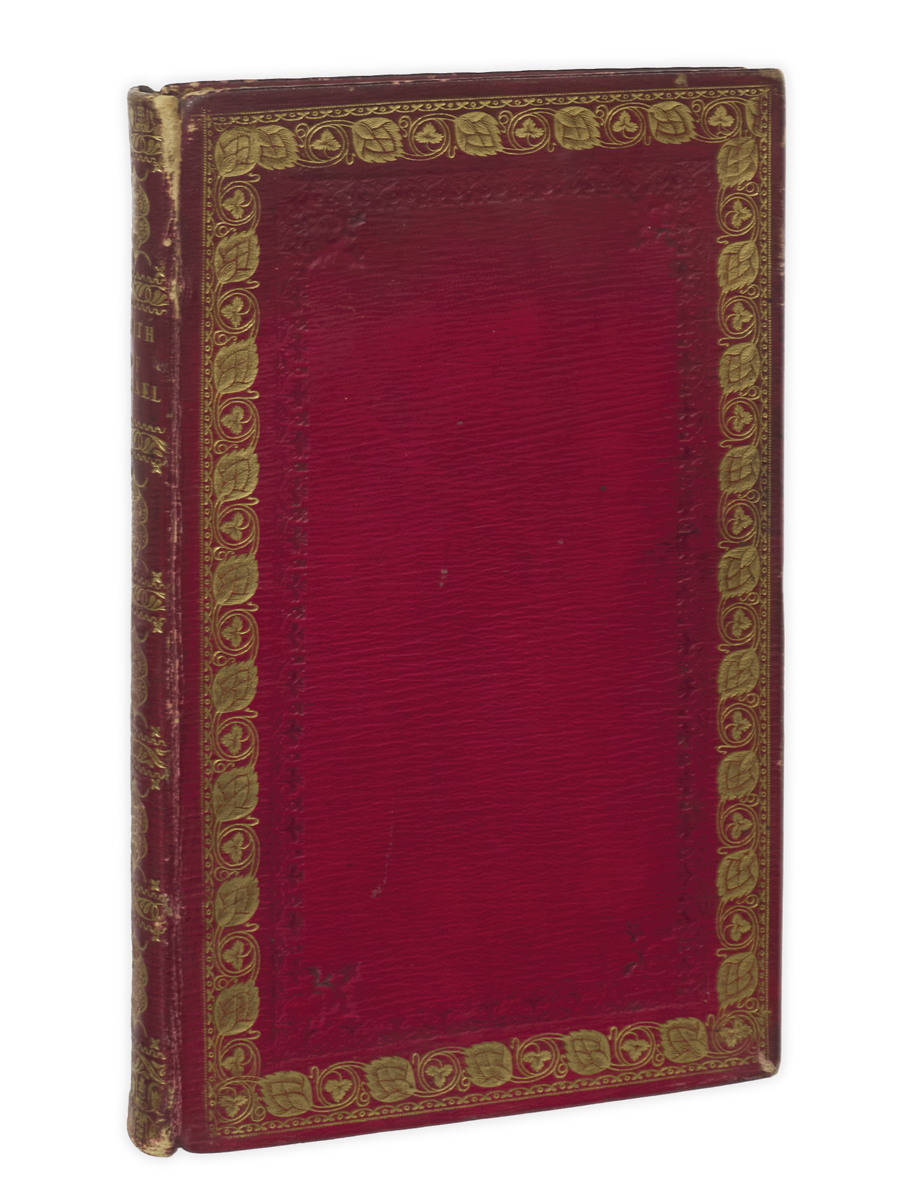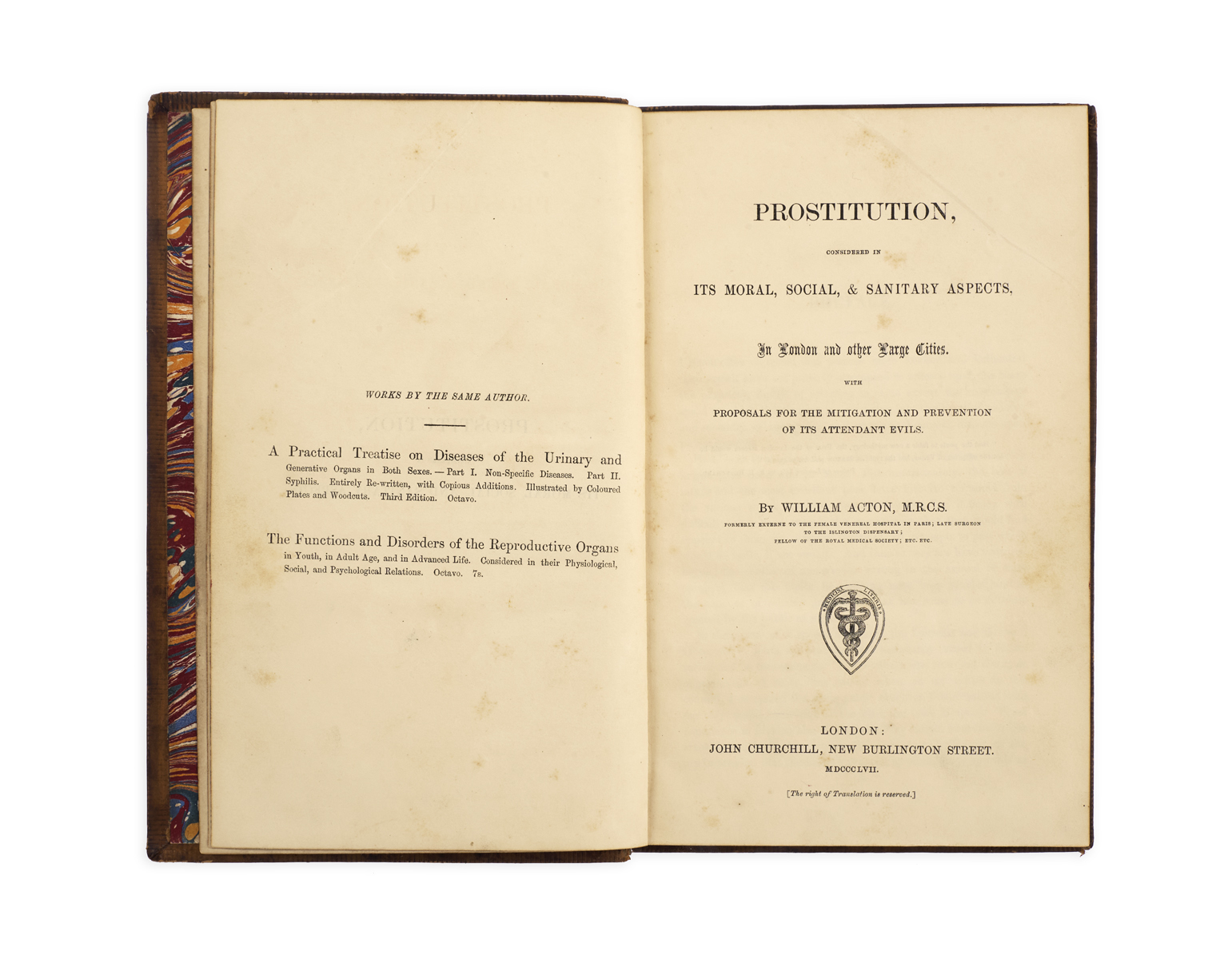
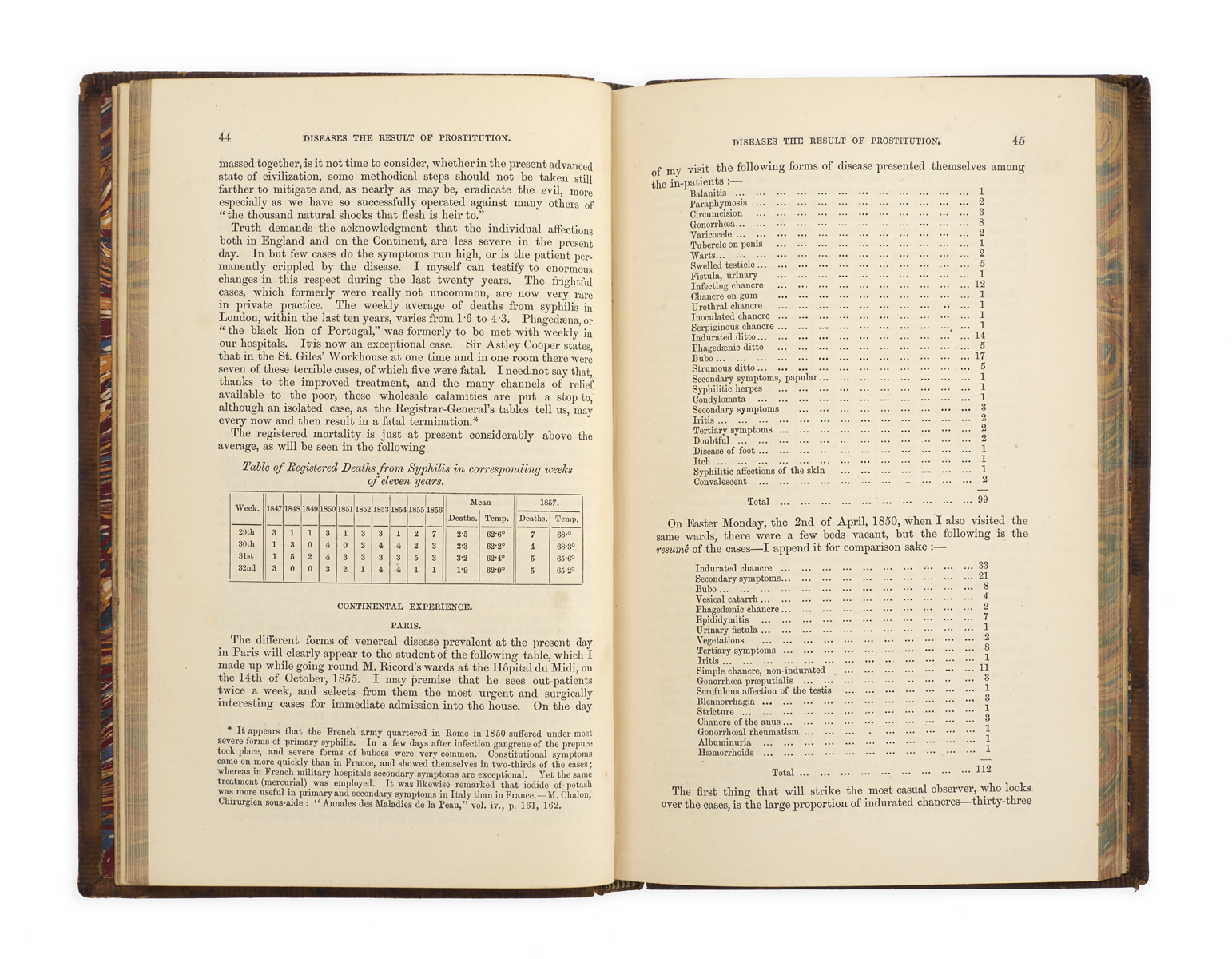

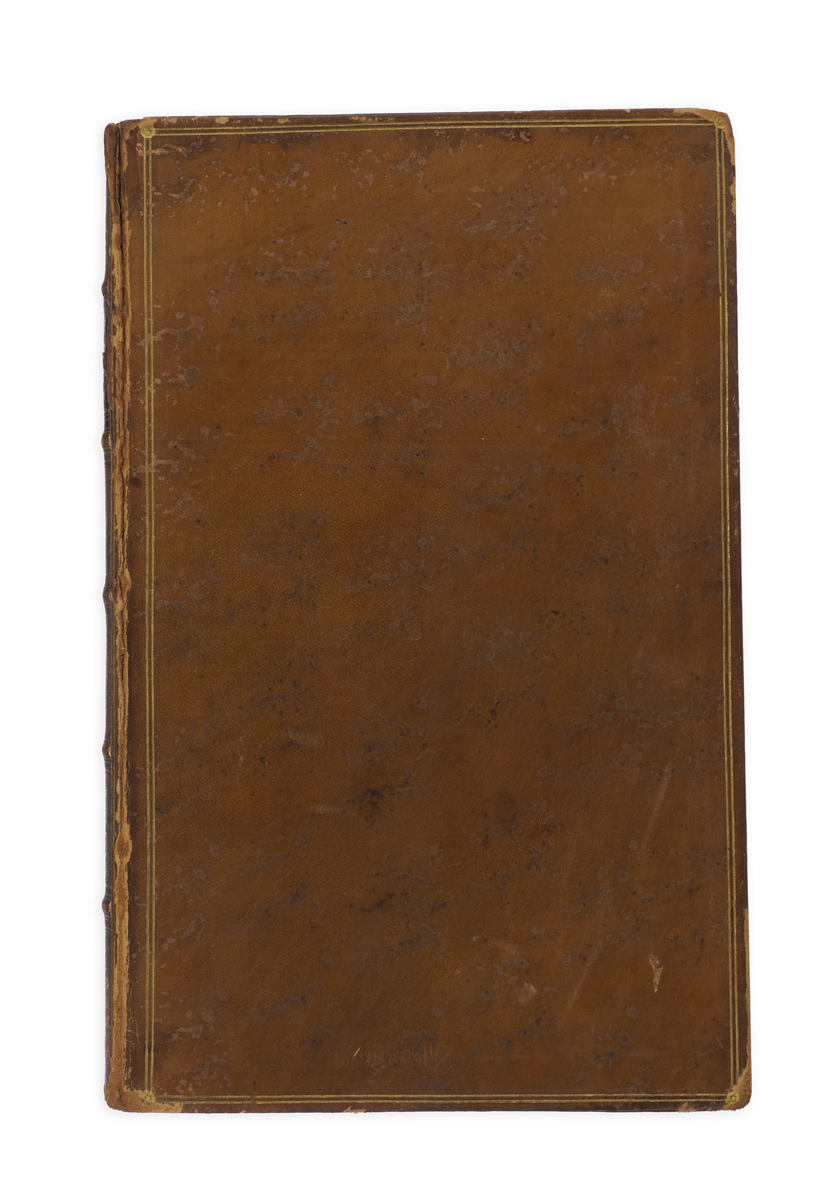
SYMPATHY FOR SYPHILITIC SEX WORKERS
ACTON, William.
Prostitution, considered in its moral, social, & sanitary aspects, in London and other large cities. With proposals for the mitigation and prevention of its attendant evils.
London, [Savill and Edwards for] John Churchill, 1857.
8vo, pp. ix, [1 (blank)], [2 (contents, blank)], 189, [1]; with half-title, printer’s device with caduceus and the motto ‘medicina literis’ to title-page; light creasing and foxing to title; otherwise a very good copy in contemporary calf, borders double-filleted in gilt, marbled edges and endpapers, spine richly gilt, gilt lettering-piece to spine; splits to joints, corners bumped; twentieth-century ownership inscription ‘CM Legge’ to front free endpaper.

Added to your basket:
Prostitution, considered in its moral, social, & sanitary aspects, in London and other large cities. With proposals for the mitigation and prevention of its attendant evils.
First edition of this medico-social analysis of sex work and sexually transmitted infections in London, in which physician William Acton argues for increased governmental intervention, influential in shaping the later Contagious Diseases Acts of 1864, 1866, and 1869.
William Acton (1813–1875) was admitted to the Royal College of Surgeons at the age of twenty-seven, having gained considerable expertise at a women’s venereal hospital in Paris. Countering the myth of the sex worker’s perceived ‘downward progress’ (disease, poverty, and untimely death), he argues that ‘a large class of our women should not be ignored or excommunicated’ and that they ‘should be as worthy of improvement, regulation, and even special legislation, as murderers, thieves, gamblers, and other male members of the dangerous classes’ (p. 4). Acton draws particular attention to the inadequacy of English medical care relative to that of France, Germany, and other countries, providing a wealth of statistics from several hospitals in the United Kingdom and in continental Europe and highlighting the dearth of beds allocated specifically to women suffering from sexually transmitted infections in London (a mere 184 hospital beds for a population of 350,000 unmarried women above the age of fifteen).
Provenance: With the ownership inscription of zoologist Cecilia Mirèio Legge (b. 1900), daughter of the bibliophile James Granville Legge and granddaughter of James Legge, the first professor of Chinese at Oxford.
See Atwood, The Prostitute’s Body: Rewriting Prostitution in Victorian Britain (2015).
